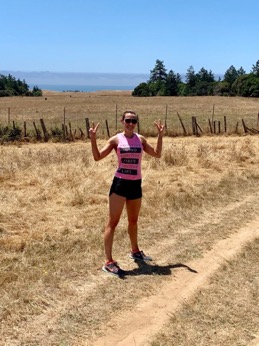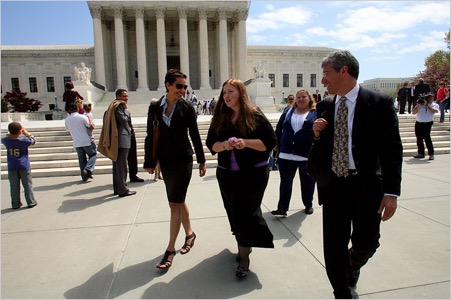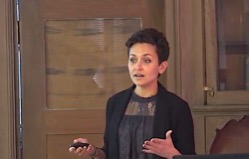Assistant Professor Anjuli Verma is one of the newest faculty members in the Politics Department and Legal Studies Program. Her research examines legal reform, social inequality, and the governance of crime and punishment from an interdisciplinary perspective using multiple methods. Anjuli holds a Ph.D. in Criminology, Law and Society from UC Irvine and a B.A. in Political and Social Thought from the University of Virginia. Before joining UC Santa Cruz earlier this year, she spent two years at UC Berkeley School of Law as a Chancellor’s Postdoctoral Fellow in the Jurisprudence and Social Policy Program, where she extended her research on the legal reform of California’s historically overcrowded prisons and jails to examine the aging demography of incarceration, federal-state cost shifts under healthcare reform, and the imposition of monetary sanctions resulting in widespread legal debt by the 21st century.
Anjuli previously worked in community affairs at the Southern Poverty Law Center in Montgomery, Alabama, and for seven years as a policy advocate and communications strategist on drug policy and criminal justice reform issues at the American Civil Liberties Union. These early professional experiences inspired Anjuli to return to school and pursue a graduate degree that would allow her to bring research to bear on deeper questions and dilemmas in the fields of criminal justice reform, law, inequality, and social policy.
As a social scientist, Anjuli’s research takes her to nearly every scene in the criminal legal process by which contemporary mass incarceration unfolds within the state of California. She has watched the daily routines of criminal case processing in Superior Courts throughout the state, observing arraignments, bail proceedings, evidentiary hearings, parole and probation violations, mental health evaluations, pleas and plea bargaining, inside courtrooms and outside in hallways, for felonies, misdemeanors, and crimes charged somewhere in-between. She goes inside county jails and state prisons. During police ride-alongs, she also goes inside policing; as empirical windows into how law enforcement works on a basic organizational level in the daily grind of patrol shifts night and day, she has watched the interplay of discretion, rules, and rule of law during the arrests and bookings, hospital emergency room admissions, searches, seizures, and stops that make up the personal events and institutional work of mass incarceration.
Based on this range of experiences observing and interviewing people who regularly do that work across governmental and societal levels, and who occupy multiple positions and sides of the issue, Anjuli has come to realize that the most important (and fascinating) research questions have less to do with why people commit crime than why we as a society punish the way we do.
Despite being trained as a criminologist, holding a Ph.D. in the science of crime and its control, Anjuli admits to her lack of discipline. She researches the governance of crime and punishment using multiple methods and a decidedly interdisciplinary perspective, from which the concepts of ‘crime,’ ‘punishment,’ ‘law’, ‘justice’ and the like can be called to the table as objects of inquiry and valid research questions unto themselves. As such, Anjuli describes herself in somewhat evasive disciplinary terms: as a criminologist who studies law and sociolegal scholar who studies criminology.
Given Anjuli’s academic training outside the discipline of political science, it might be surprising to find her in the Politics Department and, given she was born and raised in Alabama, to have arrived, here, in Santa Cruz. However, those who know her, and those who know UCSC’s Politics Department and Legal Studies Program, know the fit is makes perfect sense. Anjuli knew UCSC would be the right place to call home when she noticed the quip in a Dean’s email signature line, UC Santa Cruz: the original authority on questioning authority.

Questioning the authority to punish, and the authoritative power to define and do justice through punishment, has been at the core of Anjuli’s interests and frames her research agenda as a necessary starting point for answering the range of policy questions about how we might bring an end to mass incarceration in our century.
Insisting on the question of why people punish and wield the power to punish in the ways they do, rather than asking why people commit crime, reflects just the sort of discipline Anjuli lacks as a criminologist—that is, as one who questions the authority of criminology to define social problems for wider society based on its own disciplinary definition for itself. As a social scientific discipline defined by a single dependent variable (‘crime’), Anjuli continues to find criminology both a fascinating and dangerous field of study, seeking wherever possible to inject reflexivity and self-reflection among those who produce, and consume, criminological research and the knowledge and truth it asserts.
In disrupting a prevailing disciplinary paradigm through the social scientific study of punishment rather than crime, and as a scholar interested less in law-breaking than in law-making and our society’s reactions to law-breaking, Anjuli finds herself right at home in the Politics Department and Legal Studies Program at UC Santa Cruz, where research has long been recognized as one in the same with questioning authority.
Anjuli’s ultimate goal is to use the power of research to help shape a world without mass incarceration. In her view, this means producing high-quality research that intervenes in social theory as much as public policy, and research that creates powerful platforms of representation for showing institutional, social, and political worlds, and lives, otherwise unseen. She trains empirical and theoretical attention on institutional power and the humanity of institutions as the stakes of law- and policy-making. Through research at this intersection, she strives to know institutions more fully, showing how people build, sustain, and sometimes, challenge them, and to show people more fully to institutions, so that the promise of public institutions to benefit humanity might better align with their power to shape human lives in ways that reduce rather than recycle (and produce) suffering.
Anjuli is most proud of the opportunities she has had to see law change, even in small ways, and those instances where she was able to play some small role in helping mobilize the force of law to change rules and circumstances with real benefit to someone living at a strategic disadvantage. Her professional accomplishments include supporting those in vulnerable positions who have had the courage to bring litigation against government abuses of power as earlier in her career at the ACLU, standing by Savana Redding on the steps of the U.S. Supreme Court the day of oral arguments in her case against strip searches in school as unconstitutional); collaborating with communities on research subjects (and not as research subjects); helping write policy reports to reach audiences outside academe;
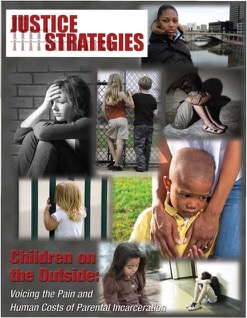
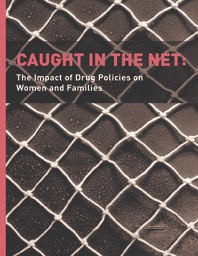
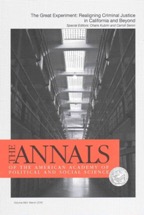
and, seeing students succeed after leaving her classroom, knowing they will each change society, politics, policy, or law by representing a new constituency in the professional worlds they enter, and create.
The way Anjuli conceptualizes the courses she is teaching at UC Santa Cruz grows directly from her research approach and experiences. Her upcoming courses include: the newly-developed undergraduate upper-division elective, The Power to Punish (POLI/LGST 182), which asks: What is punishment? Why punish? How, and whom, to punish?; the graduate seminar, Logics of Inquiry (POLI 201), designed for doctoral students to investigate approaches in the study of politics and wider enterprise of social science from positivist, interpretive, historical, and critical theoretical standpoints; also newly-developed for undergraduates, Governing the Golden State (POLI 21) introduces state politics in California, and POLI/LGST 121: Race & Justice in America examines how race is forged as a distinctive concept and logic of American government and traces undercurrents of racial reasoning in transcendent notions of justice from the nation’s founding into the 21st century.
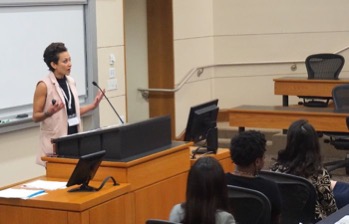
If given three wishes, Anjuli would use one to assign Stanley Cohen’s (1979), “The Last Seminar” as required reading for every social scientist. In a brief essay, which presents a fictional story, “The Last Seminar” somehow captures with great honesty what Anjuli feels to be an important the truth about academic work in the social sciences. As the professor writes in Cohen’s account of “The Last Seminar” (p. 305):
“I had no plan beyond survival and the continued attempt to make sense of things. There was nothing more an intellectual could do. There never has been.”
Anjuli often resorts to reading (sometimes writing) poetry when things stop making sense. As for a work ethic, she tries to live by the lines of a poem by Mary Oliver, Work Sometimes:
“Happiness isn’t a town on a map, or an early arrival, or a job well done, but good work ongoing.”
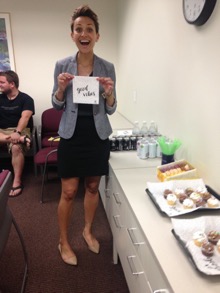
When needing to clear her head, Anjuli likes to ride The Giant Dipper on weekdays. She can also be spotted running for her life in the trails of Santa Cruz.
